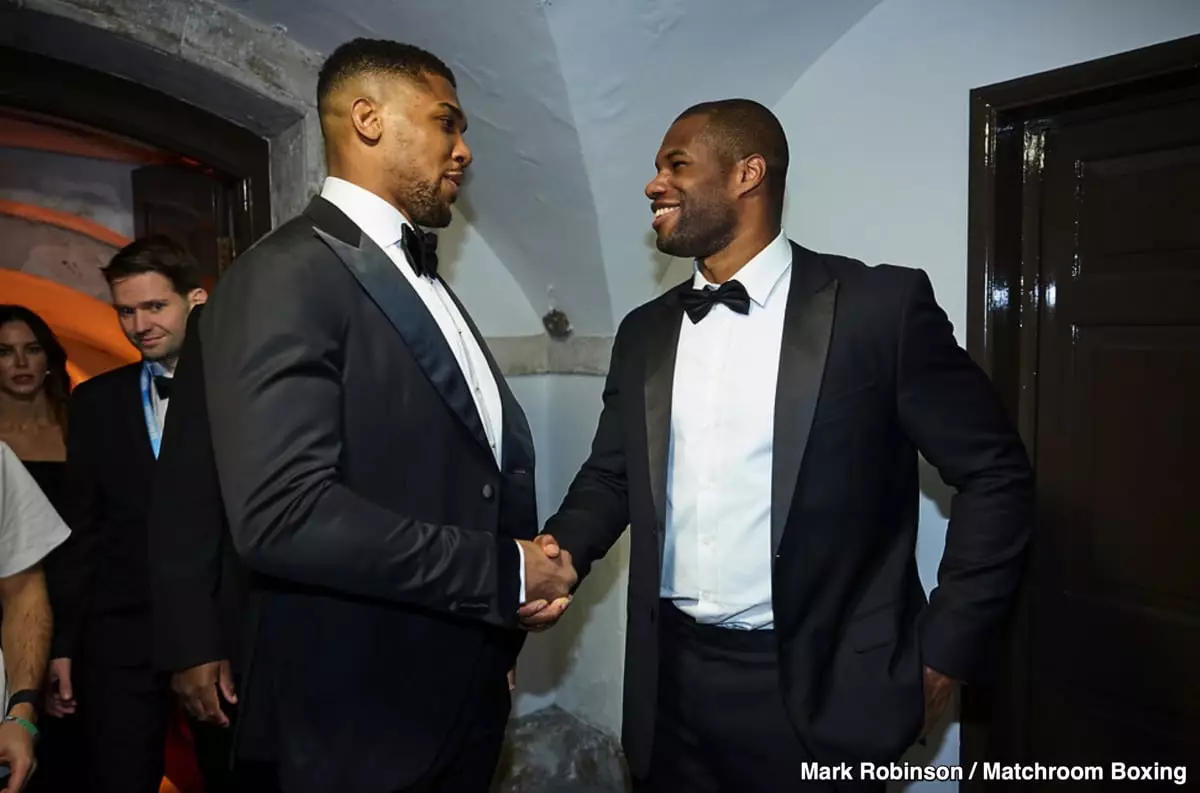Eddie Hearn’s recent conversation with Chris Mannix sheds light on the uncertain future of Anthony Joshua, the former two-time heavyweight champion. Following a disappointing defeat to Daniel Dubois, Joshua’s trajectory in the boxing world has raised important questions about his next move. The boxing community is fraught with speculation, especially since a much-anticipated fight against Tyson Fury has crumbled with Fury declaring his latest retirement. The landscape is changing rapidly, and Joshua’s options are becoming increasingly critical.
Joshua’s Immediate Challenges
Joshua’s immediate need for a victory has never been more pronounced. Having suffered a damaging loss, he is under pressure to recalibrate his career and re-establish himself as a contender for the heavyweight title. The implications of a defeat to Dubois cannot be understated; it has resulted in an urgent necessity for Joshua to revitalize his image within the sport. A fight against the winner of the scheduled bout between Daniel Dubois and Joseph Parker represents a logical avenue for Joshua’s comeback efforts, particularly if he hopes to reclaim a championship title.
Hearn’s assertion that the primary goal remains to win back the heavyweight championship encapsulates the urgency of the situation. However, the uncertainty surrounding heavyweight bouts – notably, the Dubois vs. Parker match – complicates matters. Should Joshua’s hopes of facing the victor fall through, would he be willing to take on fighters such as Agit Kabayel or Zhilei Zhang? These opponents present varying levels of risk and reward, making it essential for Hearn, Joshua, and their team to navigate this critical junction strategically.
Hearn’s reference to a possible fight against Deontay Wilder also highlights a tantalizing but complex possibility. Wilder, grappling with his own challenges following consecutive losses, could indeed become a viable option depending on the outcome of his upcoming bout with Curtis Harper. If Wilder manages to secure a win, the allure of a Joshua-Wilder clash would certainly reignite interest, especially given the historical significance associated with such a matchup.
However, the question remains whether Joshua and Wilder still possess the clout they once did in the boxing world. The idea of this matchup being “must-watch” TV is contentious at best. The continuous ebb and flow of their careers has resulted in both boxers losing some of the shine they once had, and while there still exists a strong fan base for a Joshua-Wilder fight, the urgency might not compel many to rearrange their lives around viewing it.
Moreover, the fascinating prospect of Joshua fighting Martin Bakole in Africa adds another layer to the discussion. This potential bout, positioned as a “Rumble in the Jungle II,” sparks curiosity while also raising significant doubts. Would it be wise for Joshua to face a younger and increasingly formidable opponent like Bakole, particularly given his recent struggles in the ring? The riskiness of such a fight could outweigh its perceived reward, complicating Hearn’s assertion that Joshua must fight only the top contenders to regain his status.
Clearly, the heavyweight division is rife with complexities that can alter the course of a fighter’s career in an instant. The financially driven nature of boxing further complicates matters; promoters and investors are undoubtedly interested in the potential money fights that could line their pockets. However, the question of whether the public will still rally around a Joshua-Wilder fight, or any other potential match, remains vital.
In many ways, Joshua’s next steps should symbolize a balance of ambition and caution. It’s critical for him to regain his footing within the sport while also considering the implications of facing opponents who could exploit any lingering weaknesses. The time has come for Joshua and his team to think critically about their choices, as the future of one of boxing’s prominent figures hangs delicately in the balance. If there was ever a moment for strategic planning and calculated risks, it is now for Anthony Joshua—his next move could define how his legacy is ultimately perceived.


Leave a Reply